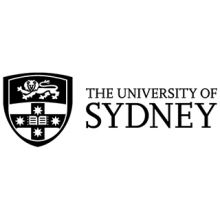Question marks hover over the post-pandemic form of international education, after Australia’s higher education regulator signalled a return to pre-Covid rules for online delivery.
In the early months of the pandemic, the Tertiary Education Quality and Standards Agency (Teqsa) stopped enforcing a regulation barring people on student visas from completing more than one-third of their courses online. Late last year, with borders about to reopen, the agency vowed to review this approach in mid-2022.
It has now done so, saying it expects institutions to “actively adjust” their modes of delivery to comply with the rules by next July. But Teqsa has left providers with an escape clause, saying compliance will only be required “where it is safe and practical”.
A return to pre-pandemic operations will “pose challenges”, the agency observed, promising to “monitor the transition across the sector and engage specific providers for whom particular circumstances apply”.
Nevertheless, the move effectively scuppers prospects of a new model of international education whereby students could complete entire degrees online in their home countries before coming to Australia to exercise post-study work rights.
Coronavirus demonstrated likely demand for such an approach – particularly in China – with overseas enrolments rising at some institutions despite border closures. The University of Sydney increased its earnings from international education by 4 per cent in 2020 and 23 per cent in 2021, while many of its foreign students were stranded overseas.
This model requires sympathetic rules both in Australia and in students’ home countries. And while China has also relaxed its stance on remote delivery, agreeing to recognise foreign degrees taught partly online, observers see this as a temporary measure.
International education analyst Angela Lehmann said she expected Beijing to reassert its pre-pandemic restrictions on online delivery when it eased its border restrictions. But there were contradictory signs about when that might happen.
On one hand, flights into China were increasing and there were “rumours” of policymakers having discussions about Covid measures. On the other hand, Shanghai had been plunged back into lockdown and hundreds of thousands of workers had reportedly fled an iPhone factory placed under quarantine because of a Covid outbreak.
“It’s going to be difficult for [Chinese authorities] to go back on their flexibility around online education right now, but we can expect that will change as soon as the borders loosen up,” said Dr Lehmann, head of research with The Lygon Group consultancy. She said she expected this to occur around March next year.
Overseas higher education students have flocked back to Australia this year, with around 17 per cent still stuck offshore by July, down from about 44 per cent a year earlier. Chinese students have been slower to return, with about 31 per cent undertaking Australian courses from their homeland.
A recent survey of prospective students found considerable appetite for remote delivery. Eighteen per cent of respondents said they were “very interested” in fully online courses, while 46 per cent expressed enthusiasm for a combination of campus-based and screen-based study.
Online delivery has come under the scrutiny of a parliamentary committee examining ways of boosting the contribution of international education, along with tourism, to Australia’s post-Covid economic recovery. The terms of reference for its inquiry include “online innovations in education delivery and potential opportunities to strengthen the sector’s resilience”.
Register to continue
Why register?
- Registration is free and only takes a moment
- Once registered, you can read 3 articles a month
- Sign up for our newsletter
Subscribe
Or subscribe for unlimited access to:
- Unlimited access to news, views, insights & reviews
- Digital editions
- Digital access to THE’s university and college rankings analysis
Already registered or a current subscriber?










